“The internet is great. I use it often for social media channels, but I must admit I was bullied and felt very uncomfortable and unsafe. You think you speak to a person at your age while playing online games or scrolling on TikTok, but there is a much older person who tries to take advantage of you,” says Ismael, 17-years-old, from Lima.
In Lima, the capital of Peru, a significant initiative is taking shape. Its aim is to safeguard the country’s children from the growing dangers present on the internet. This effort was made possible through a combination of dedicated individuals, advanced technology, and funding provided by Safe Online.
Peru, similar to numerous other countries, is grappling with a serious issue: online sexual exploitation and abuse of children. The expansion of the internet, while providing vast opportunities for connection and learning, also creates spaces where children can be vulnerable to predators.
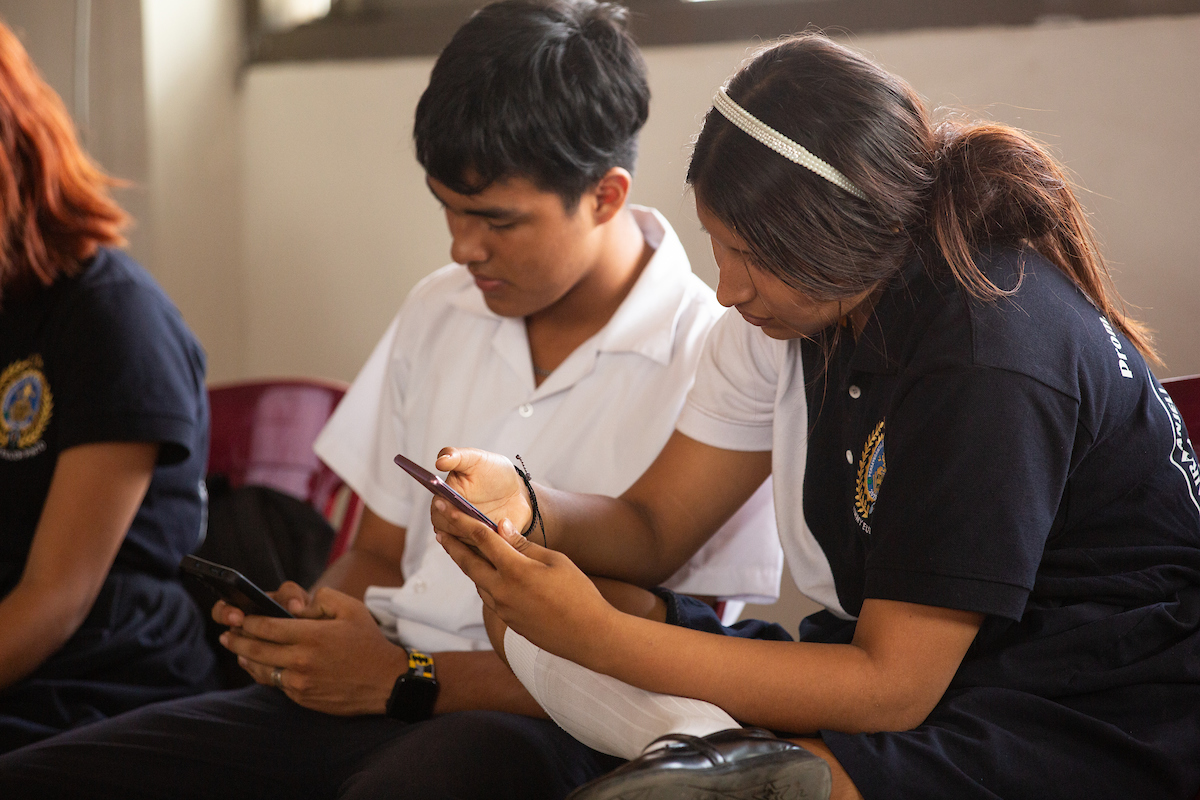
Children are commonly abused or exploited by acquaintances, yet the digital realm also opens up new possibilities for interactions with strangers who may exploit them. Children in Peru face various digital-related risks, including cyberbullying, online sexual exploitation, exposure to inappropriate content, privacy breaches, and identity theft. However, efforts towards improvement are underway, driven by Safe Online and the committed work of organisations such as Capital Humano y Social Alternativo (CHS) in Peru.
The journey started with financial support from Safe Online. This funding allowed CHS to envision and pursue ambitious goals including research studies that revealed the extent of children facing situations of risk and sexual assault in the digital space and highlighting digital environments where children and adolescents have the most interaction, that is, video game environments and social networks. Their aim was clear: to bring about significant change. Collaboration played a crucial role, and CHS partnered with Softnyx, a prominent gaming company in South America. Together, their mission was to enhance safety within virtual worlds, particularly in online gaming platforms where many children spent their time, often oblivious to potential dangers. They developed a potent tool to combat child abuse in these virtual spaces.
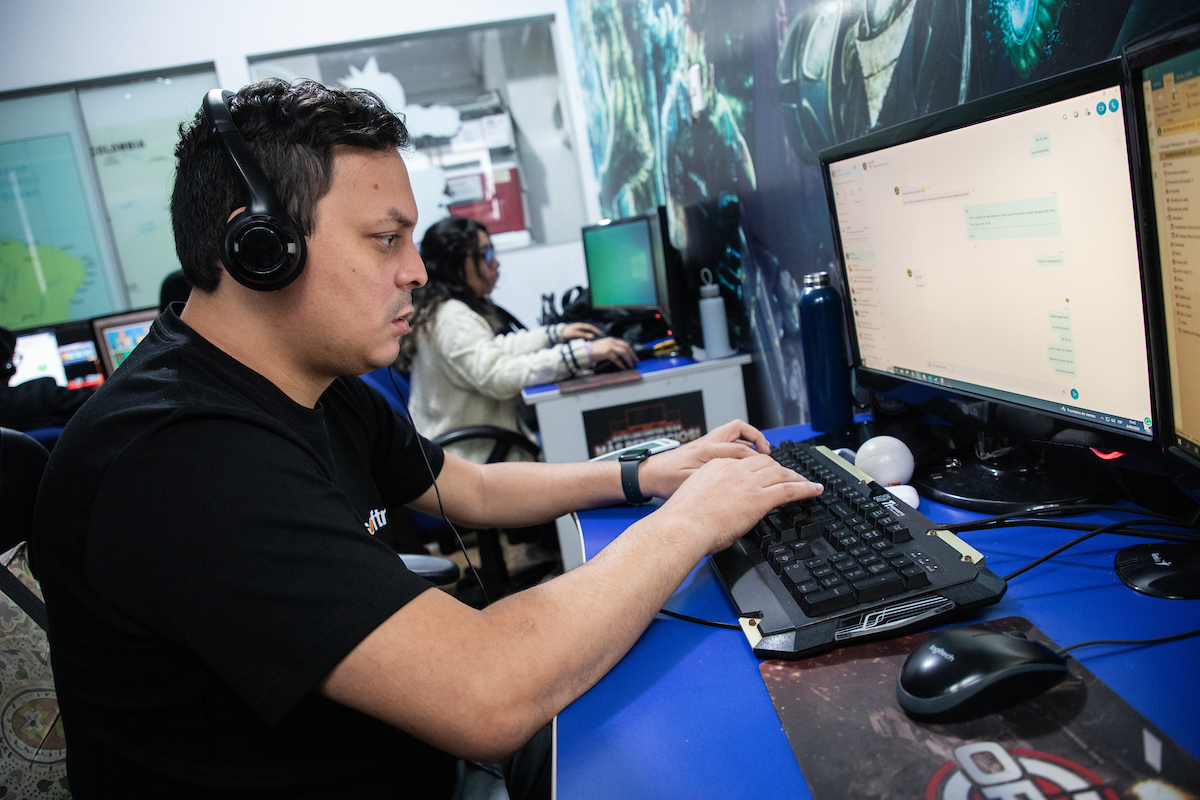
“Online gaming is very popular in our country, and the games by Softnyx are by far the most preferred ones. With such popularity, the risks our children face are also increasing. Children can end up meeting and connecting with people that they do not know, and who can try to exploit them. Together with CHS Alternativo, we tackled this issue and integrated a reporting system in our gaming platforms. Now, when children feel any suspicious or uncomfortable approach from another gamer in the platform, they can report directly and none of the cases are left unseen. If and when necessary, the cases are forwarded to and handled by national authorities to protect our children,” tells Williams Carillo, Operations Chief at Softnyx.
Thanks to the funds, CHS Alternativo worked together with Softnyx and a smart tool, combining technology and psychology was created. This tool could identify suspicious activities, conversations, or content suggesting potential abuse, serving as a watchful guardian for digital spaces around the clock.
However, this was just one part of their mission to tackle online child sexual exploitation in Peru. CHS Alternativo recognized that prevention was just as vital as intervention. They extended their efforts to reach teachers, parents, child service providers, government officials, and members of the judicial system. Through comprehensive training sessions, they educated these key figures about the dangers of the digital world and established campaigns to spread awareness on the threat of online exploitation.
“The training I got with CHS Alternativo about the possible dangers while using the internet; how to identify and to act towards these, was extremely enlightening. When I was 13 years old, a much older woman began to chase me online. This incident traumatised me. Thanks to the training, we now know the risks one can face – such as grooming- and we can identify a fake profile. Above all, this training made me realise I want to be involved in communities to empower women and educate them about navigating the internet.” Cielo, a 17-year-old student, shares with us in CHS Alternativo’s Iquitos Office.
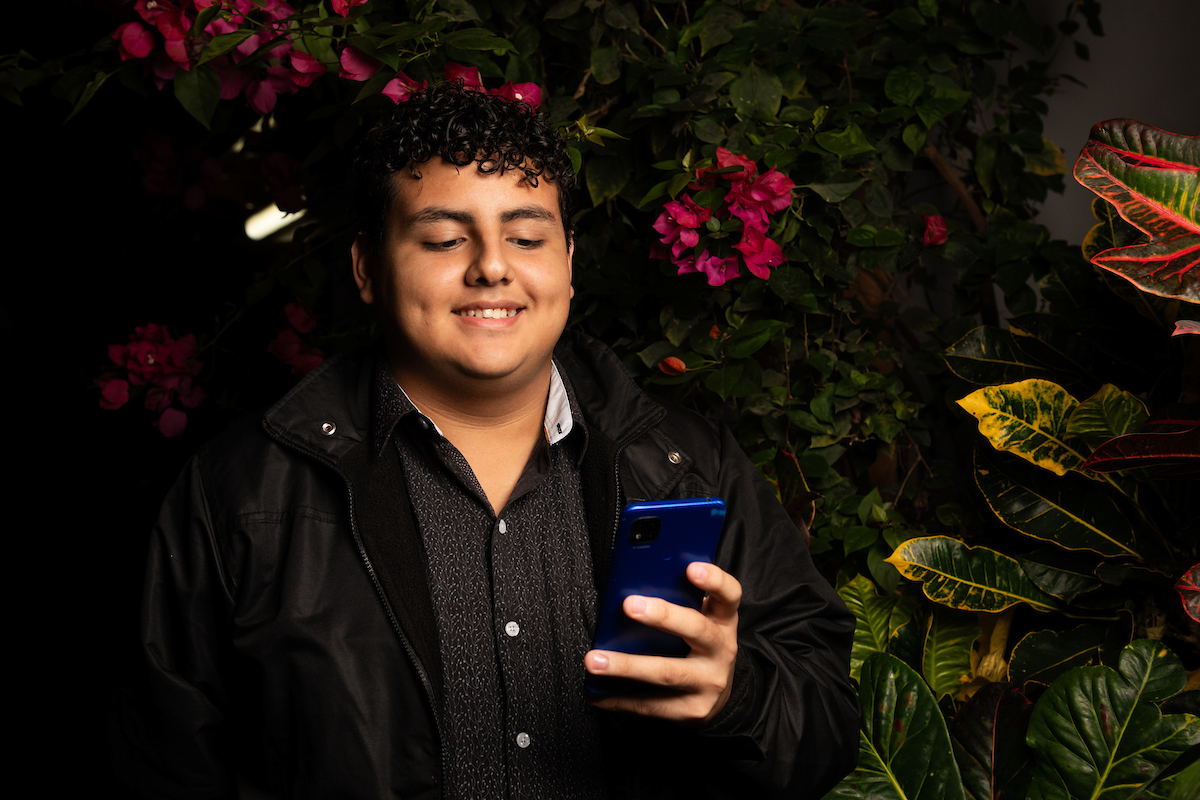
Alejandro, a 15-year-old, went through online bullying, making it tough for him to want to leave home and go to school. When he heard about CHS Alternativo’s training sessions on online risks for young people, his mother encouraged him to join. Alejandro enjoys using the internet and is now dedicated to speaking up about the challenges youth face online. He advises others to be cautious, educate themselves and not fall prey to online predators.
“Our collaboration with Safe Online was a remarkable journey, as before not much was done in terms of online safety of our children in Peru. We had a global focus; we worked with government and private sectors – as well as with youth, which was our priority. On the government level, we worked in prosecution and also supported victims – especially young boys and girls who suffered sexual persecution. Together with the minister of education, we could translate the issue into several messages for raising awareness about the risks of online abuse, and also initiated conversations with parents,” shares Ricardo Valdes, Executive Director of CHS Alternativo in Peru, and he continues:
“We worked with the police working in technology. The stats from the police were very low. They didn’t know how to describe the different violations. We had to explain to them online child sexual exploitation, given that awareness of this particular issue remains relatively obscure in Peru.”
–Ricardo Valdes
The impact of CHS Alternativo’s efforts spread widely. Communities became more alert, acting as watch dogs against the hidden dangers of online exploitation. They developed strong defences, recognizing that knowledge was their most effective tool.
“Being a shy child, and not having much of a social life impacts young children. I was also tricked to send nudes through social media by a man I did not know. He was promising gifts in return. Such incidents happen to many young girls in my village. In my school, we got training and education about the risks of online safety. I wanted to take part in this training, to be able to spread the word and inform children in remote villages like mine, here in Nauta. Now, I train kids in my own school, thanks to the education I received with CHS Alternativo -and I wish every child to be safe online,” shares Mikva, 18-years-old from Nauta Village in Peru.
CHS conducted an extensive investigation covering seven regions, examining the existing services for victims of online violence. They actively listened to the experiences of those who had suffered, comprehended their challenges, and used this insight to bring about practical changes.
The work did not stop here. CHS took on the role of advocating for change, urging the integration of prevention measures against online sexual exploitation into national agendas. Advocates at CHS and other civil society partners worked tirelessly to develop protocols and strategies to combat online violence, addressing this challenge that often unfolded in the digital realm.
The momentum for change continued to build. Peru, in its commitment to safeguarding its children, took a pioneering role. Laws were enacted, regulations implemented, and systems strengthened. The government and civil society joined hands to create a safe digital space for its young citizens.
Ricardo Valdes elaborates: “Utilising funds from Safe Online, we launched nationwide campaigns aimed at reshaping how families perceive and use the internet, educating parents about potential dangers. A significant milestone was initiating a movement that led to a mandate requiring Internet Service Providers to implement content filters every six months. This policy underscores the notion that online safety concerns extend beyond individual users to affect entire communities, particularly in public spaces lacking filtered internet access. The importance of installing filters on public Wi-Fi networks lies in controlling access to inappropriate content, thus ensuring a safe, legal, and suitable online environment for everyone. Additionally, our collaboration with the congress facilitated a national dialogue on this issue, laying the groundwork for a proposed new law. This approach, from focusing on individual awareness to enacting nationwide legislation, signifies a comprehensive strategy to enhance online safety.”
The most significant part of this change came when a pioneering law was enacted. Susel Paredes, a prominent member of the Peruvian congress, explains the legislative strides made to protect children online:
“To address the daily challenges our children encounter online, we, in collaboration with CHS Alternativo, have successfully advocated for the enactment of a new law. This legislation compels internet service providers to inform their customers about the availability of parental controls. These safeguards are crucial for blocking access to harmful content, including child sexual abuse material (CSAM), and mitigating risks related to child exploitation. Additionally, the law broadens the definition of violence to include online crimes, marking a significant advancement in our nation’s commitment to combating digital threats against children.”
–Susel Paredes
The enactment of this law marked a significant accomplishment, showcasing the persistent work of organisations like CHS Alternativo and the steadfast backing from Safe Online. It served as a positive development in the online realm, signalling to wrongdoers that their actions would face consequences.
Peruvian children can now navigate the online world with a strengthened sense of security, thanks to these protective measures. While the fight against online exploitation continues, Peru reflects a collective effort, turning aspirations into tangible outcomes and showcasing the nation’s steadfast dedication to its future generation. The success in Peru speaks to the hard work of national actors and Safe Online contributors globally, providing hope for a safer digital future. As Marija Manojlovic, Executive Director of Safe Online, aptly stated, “Peru is an important success story, pointing to the critical work that Safe Online grantees are doing across the world. We leverage our investments to construct robust foundations for a secure internet worldwide, fortified by strong legislative and policy frameworks.”
Watch Below: Our Work and Impact in Peru.
Discover how Safe Online’s fund is making a difference in Peru. Our work focuses on creating a safer digital environment for children, empowering communities with knowledge, and providing resources to combat online abuse and exploitation.
Witness the positive changes and hear firsthand stories from those whose lives have been touched by our efforts.
PREVIOUS
Stories of Impact
Images: © Safe Online/Vincent Tremeau
Copyright Safe Online 2023 ©
All imagery is taken from the Safe Online and UNICEF image library

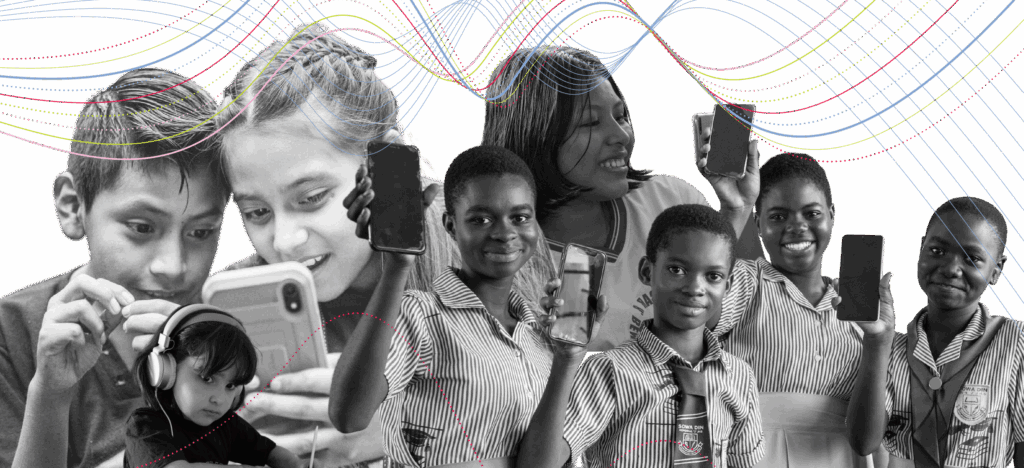
Weave Wellbeing is Safe Online’s initiative to raise a USD $100 million collaborative fund for children and adolescent mental health and safety in a digital age.
We are here to ensure every child and young person grows in to the digital world feeling safe, and is protected from harm.
We support, champion, and invest in innovative partners from the public, private, and third sectors working towards the same objective.
We believe in equipping guardians and young people with the skills to understand and see danger themselves once accessing digital experiences without supervision.